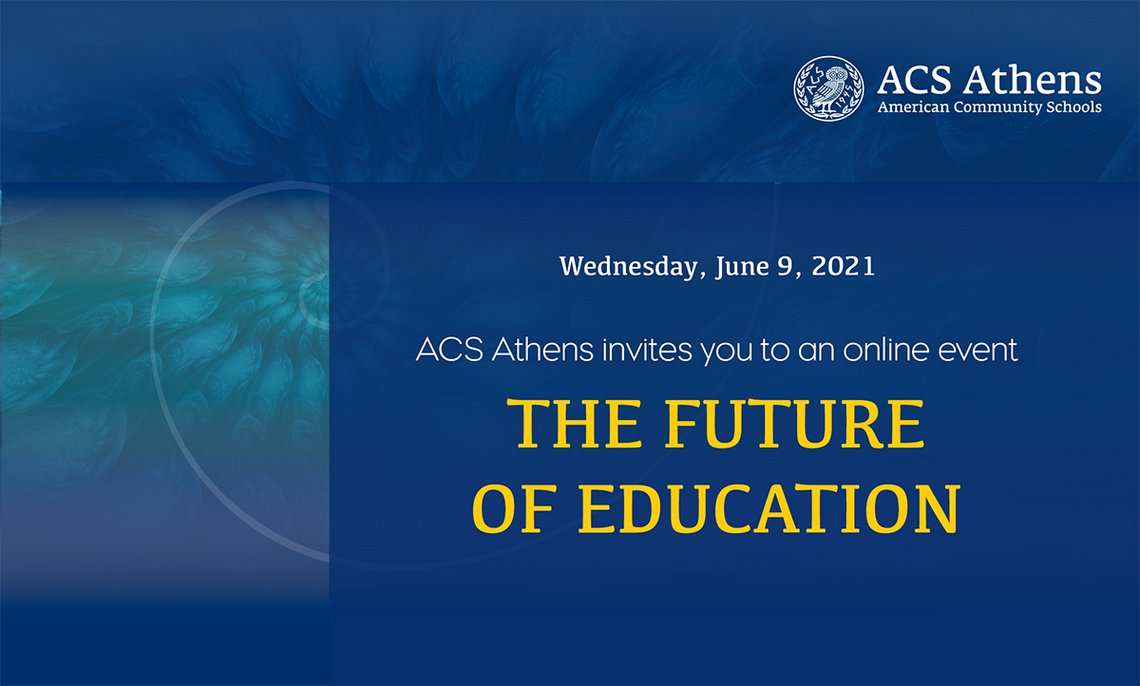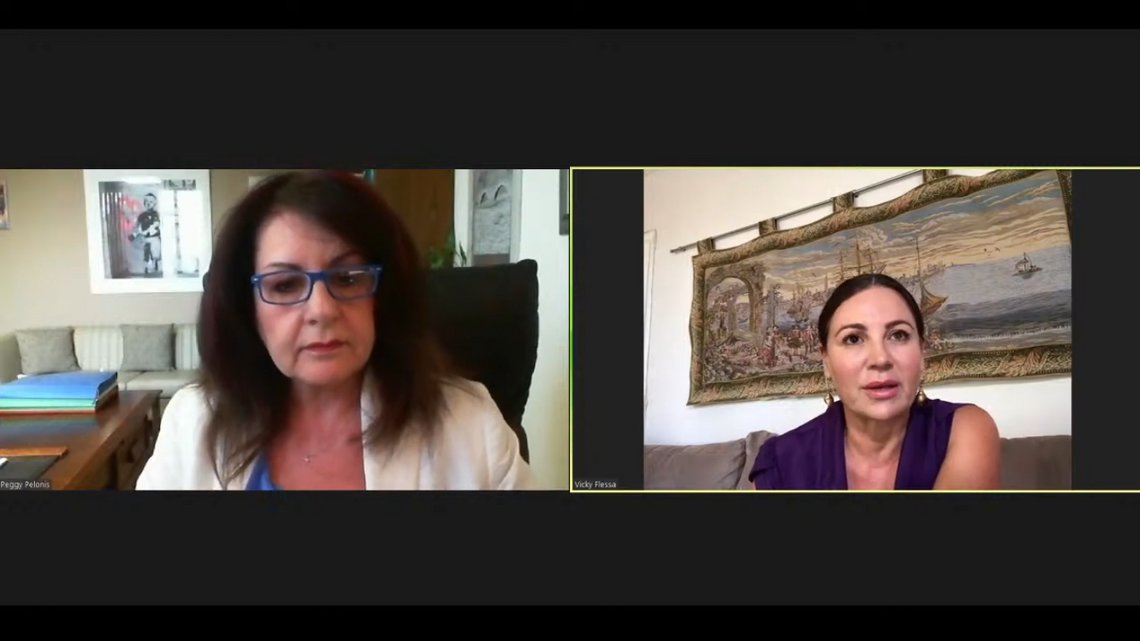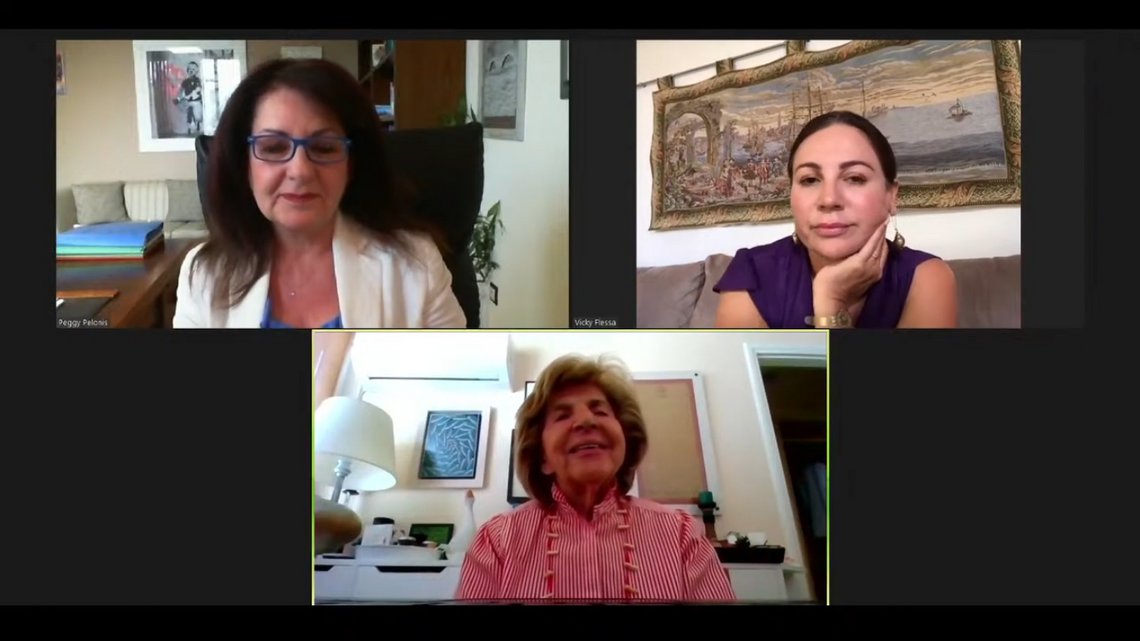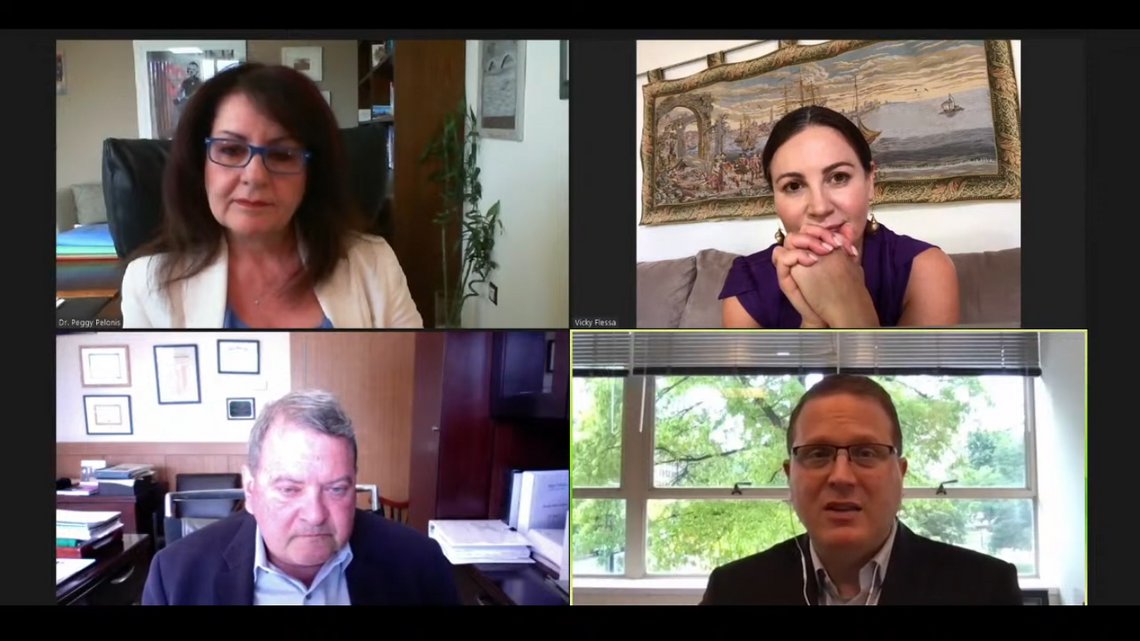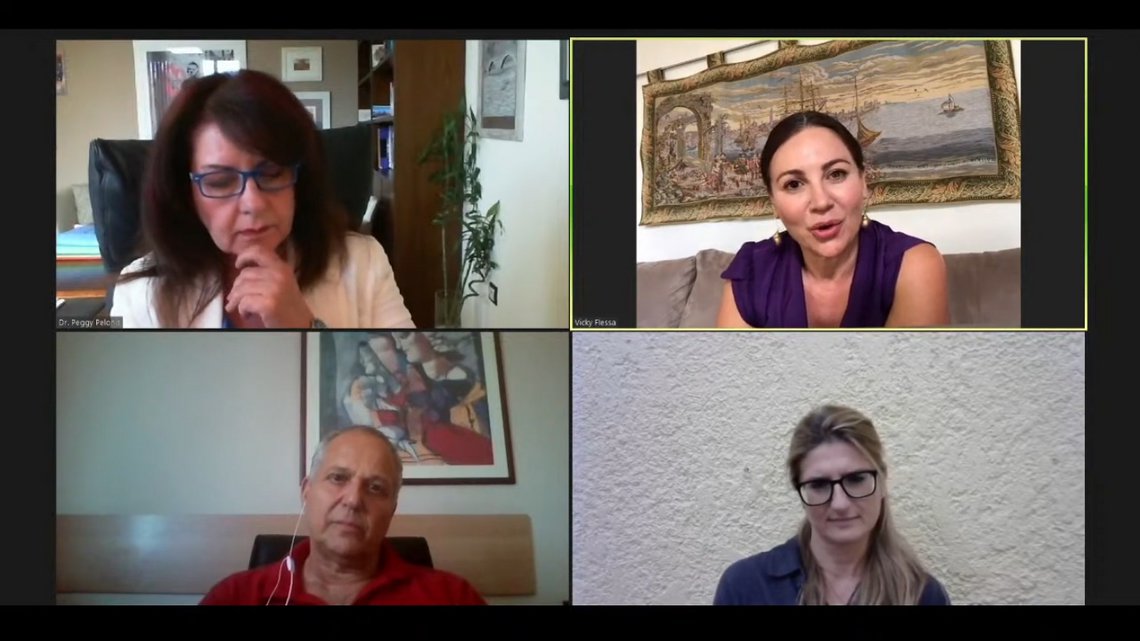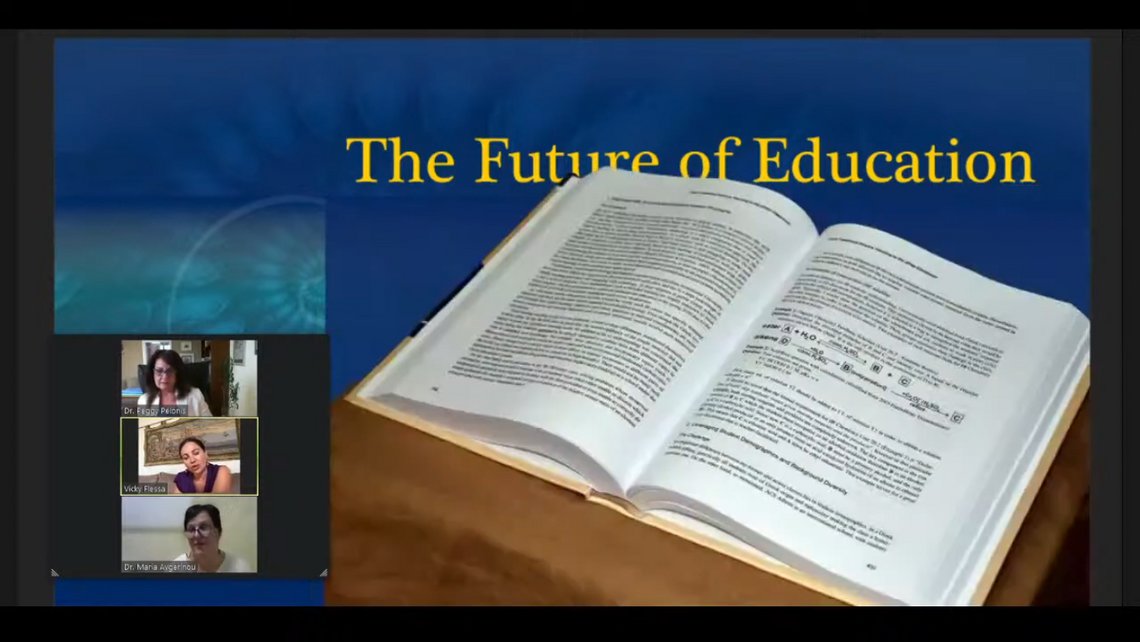"The Future of Education; Is online teaching a passing trend or a future necessity?” was the topic of an online event, the first in a series organized by ACS Athens (American Community Schools), Wednesday, June 9, 2021. This virtual event focused on the different ways educational institutions innovate by changing delivery methodologies, teaching paradigms and vision.
The power panel of distinguished speakers from around the world who shared their diverse perspectives as leaders of universities and online institutions, industry experts, psychologists, and parents included: Dr. Pelonis Peggy/President ACS Athens; Ms. Panayotopoulos Litsa/Treasurer, American-Hellenic Chamber of Commerce and Chairman of the Committee on Education, Innovation, Entrepreneurship; Dr. Miaoulis Ioannis/President of Roger Williams University and former President & Director of the Museum of Science in Boston; Dr. Ruth Kevin/President of Moreland University; Dr. Stalikas Anastassios, Chair, Psychology Department, Professor PANTEION UNIVERSITY and President, Hellenic Association of Positive Psychology; Dr. Maria Avgerinou, Director of E-Learning at ACS Athens; and Ms. Stathopoulou Tina, Entrepreneur, ACS Athens parent.
Coordinating the event was journalist Vicky Flessa who thanked everyone for their contribution and insight into the future of education and whether the pandemic generation is "forever traumatized or audaciously resilient."
For Dr. Pelonis, any effective learning environment is one that can replicate the learning community. "The computer becomes a tool for the students to continue their relationship with their teachers and engage with their fellow peers. For this to happen, you really have to have well-designed courses that have both synchronous and non-synchronous components,” said Pelonis, a California-educated Psychotherapist with a Doctorate in Education, who became President at ACS Athens in 2019. "The future ahead is challenging for all students. We must ask ourselves what kind of skills do we want them to have - and so if we define that as institutions, then we ask ourselves what kind of learning then needs to take place to develop these kinds of learners and what kind of teachers or leaders do we need to have for this to happen?” Pelonis noted.
Litsa Panayotopoulos, among other things, spoke about the importance of educating the younger generations on entrepreneurship and the benefits of making it a taught course as students in schools should understand what a company is from a young age. "The sooner students learn about entrepreneurship and understand its philosophy, the more prepared they will be. When in the university, they will already have great knowledge and idea about business entrepreneurship,” said Panayotopoulos, Treasurer at the American-Hellenic Chamber of Commerce and Chairman of the Committee on Education, Innovation, Entrepreneurship.
Dr. Ioannis Miaoulis, President of Roger Williams University and former President & Director of the Museum of Science in Boston, spoke about online learning. “Even though it has been a component of higher education for many years, the pandemic created new online learning opportunities for both teachers and students, which in most cases accelerated education,” noted Miaoulis. He also emphasized that even though faculty was quite skeptical about online learning at first, investing in the appropriate equipment and providing the proper training was vital to successfully go online and seeing the positive side of this change, such as the ability to connect with industry leaders, experts, scholars from all over the world.
Dr. Kevin Ruth, President of Moreland University and former CEO of the Educational Collaborative for International Schools, elaborated on new teaching methods as the pandemic made us move away from the traditional "teacher dispensing knowledge to student" operating model. He stressed that the future calls for developing new teaching methods and adapting to your needs (physical, virtual, hybrid). "The key is offering continuous knowledge to the students and showing them how to apply and design learning experiences,” said Ruth.
Dr. Anastasios Stalikas of Panteion University stressed the importance of positive psychology for students and teachers during the pandemic and shared valuable advice and tips for parents who need to cope with challenging and demanding parenting. "What we say to ourselves, how we narrate our life to ourselves plays a crucial role in how positive or negative we are and how we can mobilize our internal forces to be able to succeed,” Stalikas said. He also emphasized the significance of human relations. According to the latest research, when we are not together with other people, our mind is not as active as one might believe - indicating that even brain interactions and cognitive activities demand human interaction.
A mother and an entrepreneur, Ms. Tina Stathopoulou, acknowledged the challenges the pandemic brought to her family but also focused on the opportunities as well and how focusing on the "bright side" helped getting through this situation; from bringing the family closer together and spending quality time with each other, to seeing her children adapting to the new school online reality and thriving.
Dr. Avgerinou introduced the recently published second edition of the reference book "K-12 Blended and Virtual Learning through the i²Flex Classroom Model”. This book was co-written by more than 30 ACS Athens professionals, who, in quite challenging times, continued to innovate and contribute to the K-12 and higher education dialogue. This edition continues to be housed in major libraries across the world, including Stanford University. The book presents research and trends related to blended and virtual learning in the K12, research outcomes of online methodology. The book also outlines the educational philosophy and associated leadership model that need to be in place for such school-wide, technology-based innovation to succeed. Finally, it showcases individual Action Research projects written by teachers who have implemented blended and virtual teaching in their classes.
Approximately 200 people had registered for the “Future of Education” event through the dedicated platform on Eventbrite. On the day of the event, some 185 participants joined the live broadcasts on the ACS Athens YouTube channel - the event was broadcast both in English and Greek, with simultaneous interpretation. In addition, more than 50 comments and questions were submitted from the participants through the event chat. Here are some of the comments:
“Very interesting and vital issues to be discussed further.”
“Interesting point of views”
“Every aspect of the discussion is so well addressed! Thank you!”
“Many good points that I can relate to, about challenges at home during the Covid lockdown.”
“Good afternoon - thank you for presenting such an interesting topic.”
The ACS Athens online event was broadcast live on the school YouTube channel and can be viewed in its entirety here for the English language version and here for the Greek version.
The event was also featured in the news - click on the links to read what Fortune Greece, News247 and Proto Thema wrote about us!




